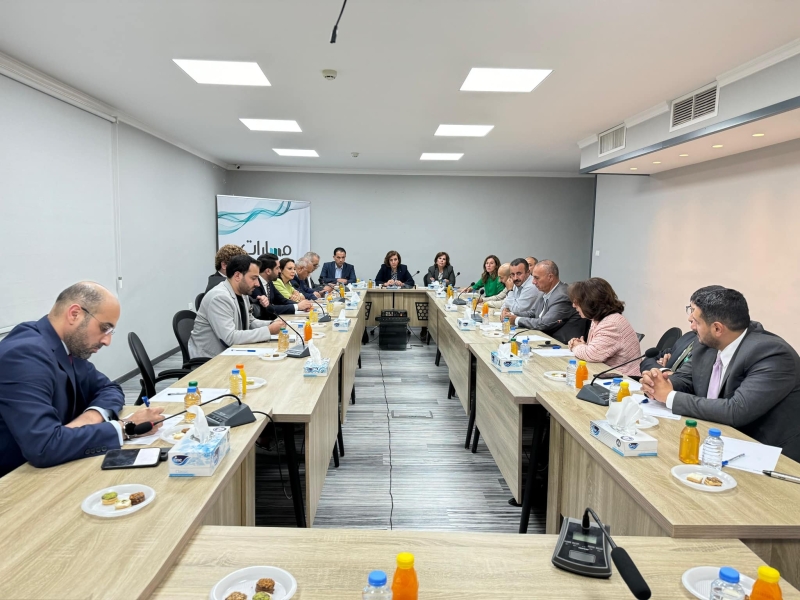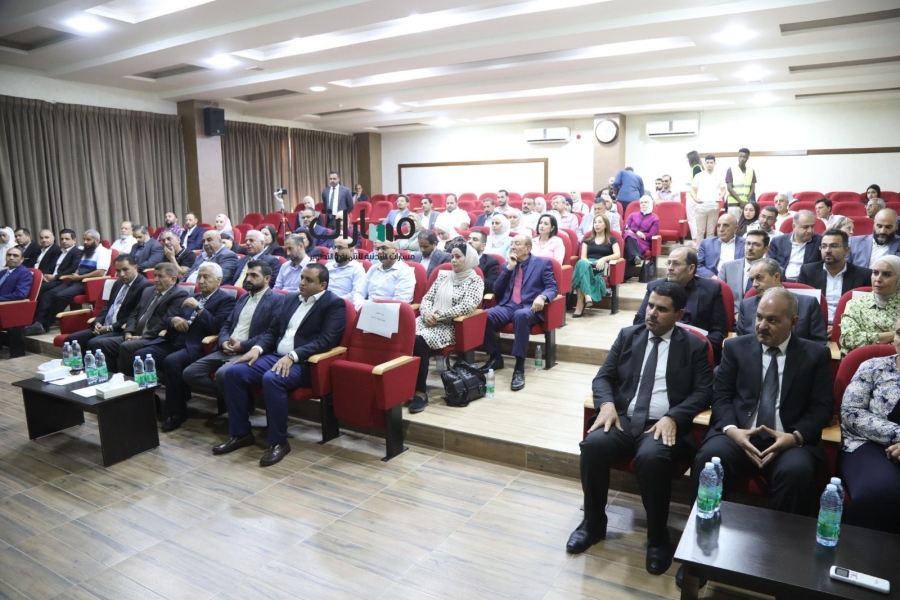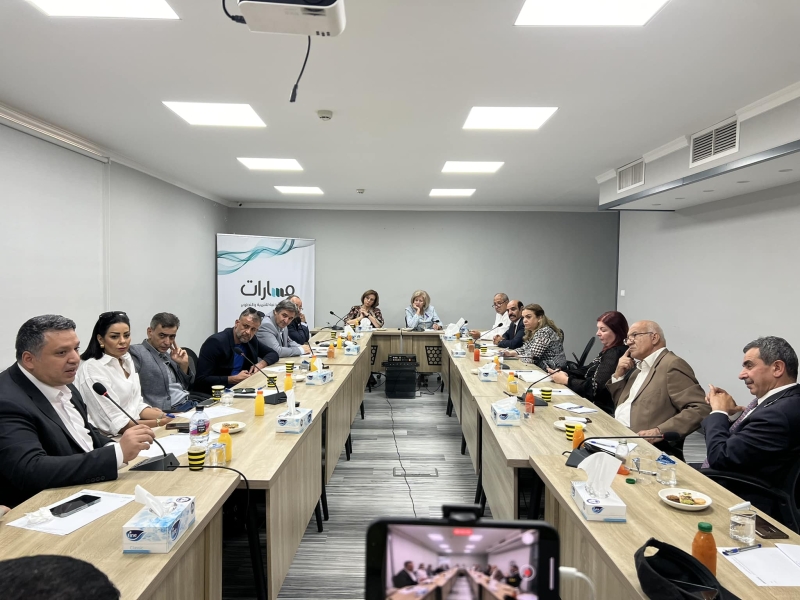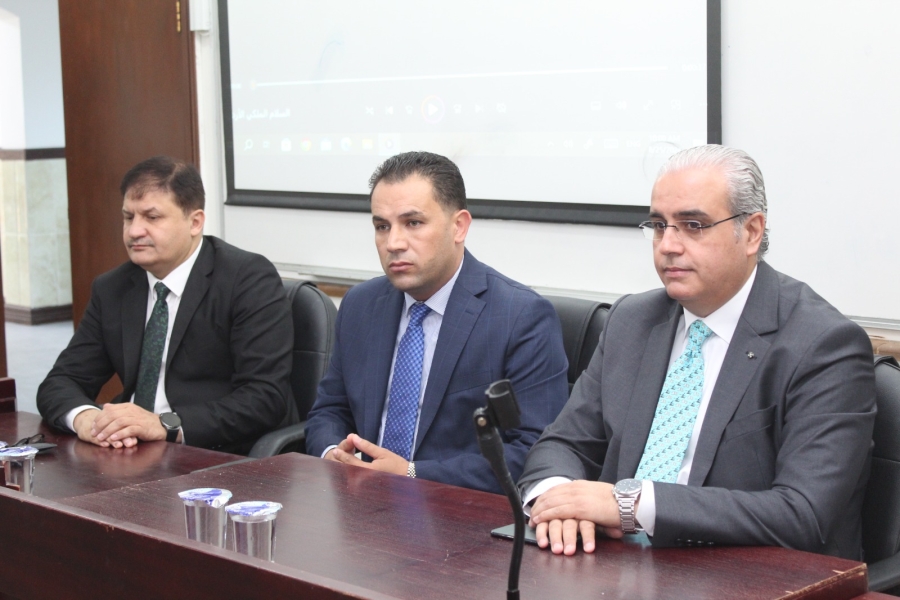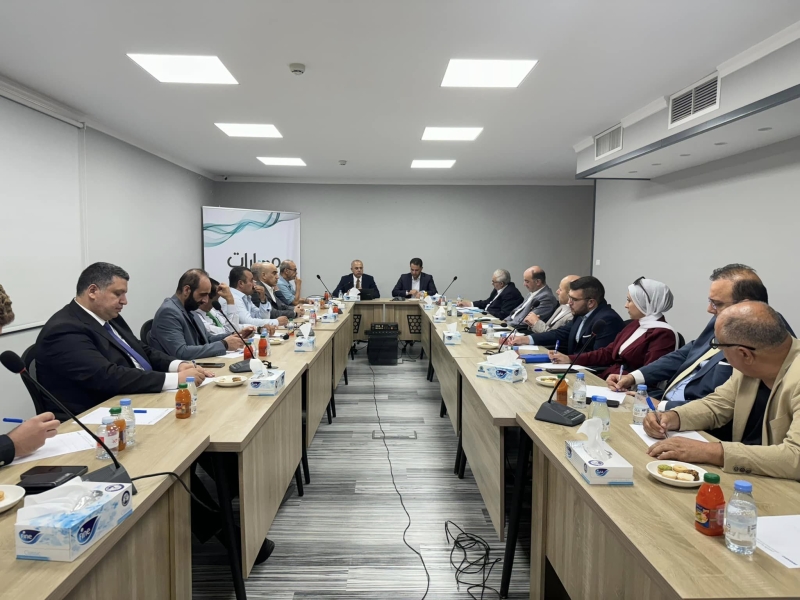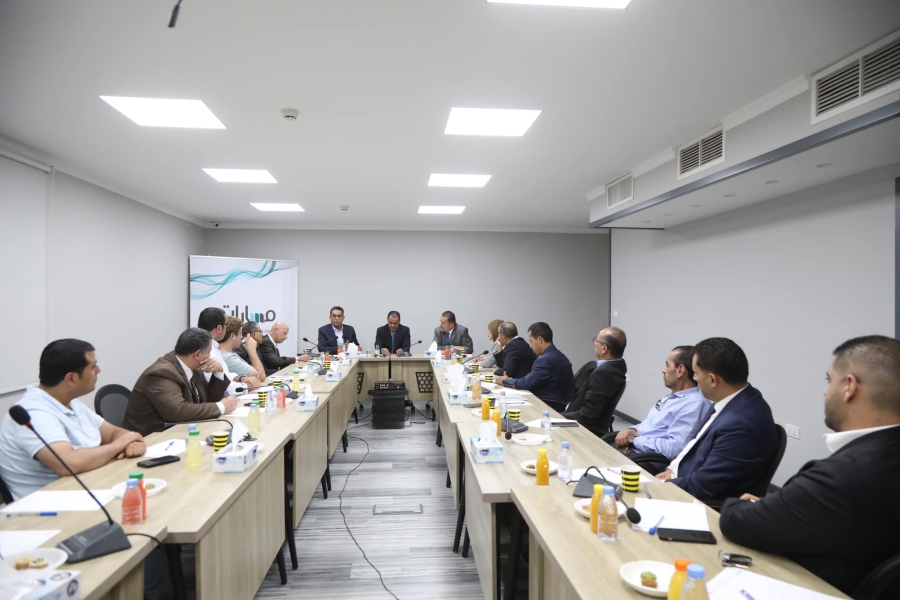Experts discuss the development of party work in universities
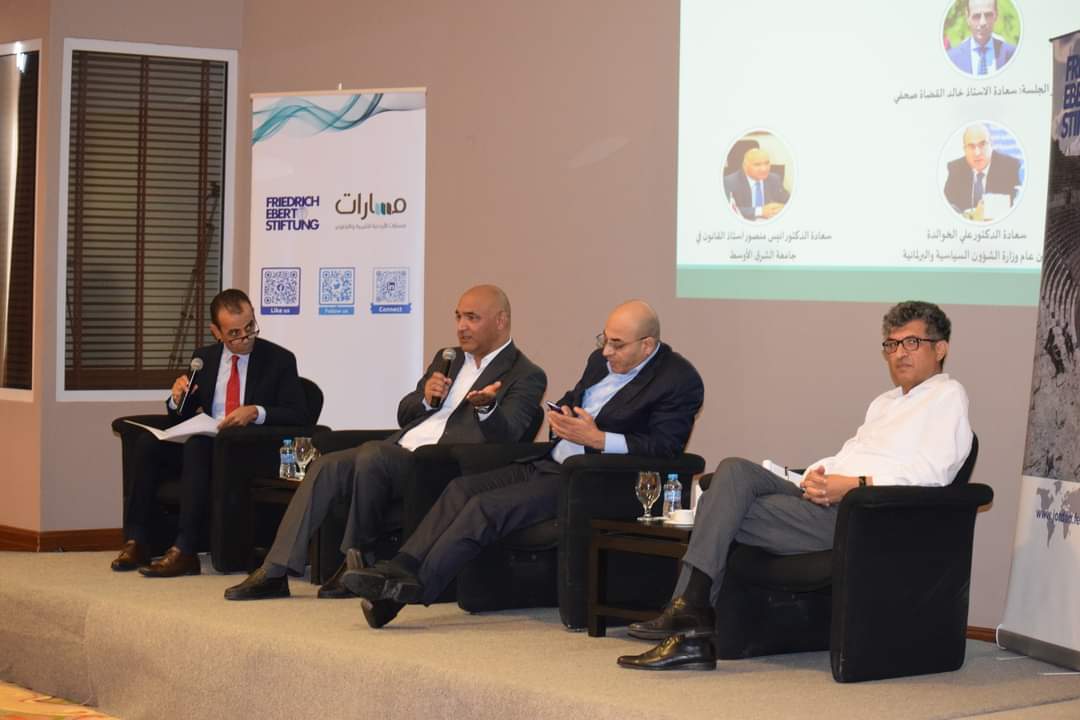
Experts Discuss Developing Party Work in Universities
Dead Sea – September 16
Participants in the second session of the conference concluding the Enabling Environment to Enhance Democratic Freedoms and the Rule of Law project, titled "Do We Need a System to Regulate Party Work in Universities?", emphasized the importance of the political reality imposed by the regulation issued under Paragraph A of Article 20 of the Political Parties Law.
During the session, moderated by journalist and media professional Khaled Al-Qudah, the Secretary-General of the Ministry of Political and Parliamentary Affairs, Dr. Ali Al-Khawaldeh, noted that the political landscape and party work in Jordan have been sufficiently diagnosed through the work of the Royal Committee for Modernizing the Political System, which examined all its aspects.
He stressed the importance of implementing the recommendations to begin building and developing parties, pointing out that the legislations have been enacted and are now a reality and a practice in society, stating that "there is no going back." He added that while there are a large number of parties, the upcoming period will reveal which ones can sustain themselves under the new foundations and conditions.
Al-Khawaldeh criticized skeptics doubting the state's seriousness in launching and developing political and party life, emphasizing that isolated incidents cannot undermine the reform process being witnessed today.
On developing and activating party work within Jordanian universities, he said, "We have reviewed the experiences of several countries. These experiences range from banning party activity in universities to allowing it, with some countries establishing specific guidelines, particularly in U.S. universities."
He stressed that the new system is still a draft project that can be amended and improved. However, many of its provisions are clear and contribute to enhancing student party activity while regulating it in a way that does not conflict with the primary role of universities, which is teaching.
Regulating Party Activities in Universities
Dr. Anis Mansour, a law professor at Middle East University, highlighted that the proposed amendments to the law represent a genuine opportunity that should be seized to encourage students to engage in party activities.
Regarding the clause allowing party work within universities only for party members, Mansour explained that the legal foundation requires that only those affiliated with parties and approved by their respective parties are permitted to conduct party activities.
He pointed out the necessity of defining the concept of party activities, what is permitted, and who can participate, as the regulation limits such activities to party members only.
He also noted that many university administrations refuse to allow these activities because their primary focus is education, knowledge, community service, innovation, and creativity. Administrators fear that permitting party activities will impose a significant burden on the university. Therefore, he suggested a gradual approach to implementing party activities in universities.
Mansour explained that restrictions on party activities, such as banning them during exam periods, in exam halls, or during lectures, aim to maintain the educational process and prevent disruptions for other students.
Party Committee Chair Speaks on Party Reform
Adnan Al-Sawair, Chairman of the Party Committee within the Royal Committee for Modernizing the Political System, stated that Jordan is transitioning to a new phase of significant party activity, with the formation of new parties and the merging of others.
He clarified that Article 4 of the system does not restrict party activity to students affiliated with parties but allows party-related activities for both affiliated and unaffiliated students.
Sawair added that efforts have been made to address many gaps in the law, particularly concerning the dean of student affairs' authority, and to prevent certain groups from joining parties to avoid misuse of positions and influence in favor of one party over another.
He emphasized that "empowering youth" is the slogan of the next phase, with the support and recommendations of His Majesty the King and His Royal Highness the Crown Prince. This focus on youth empowerment is reflected in the new laws and provisions within the legislation.

